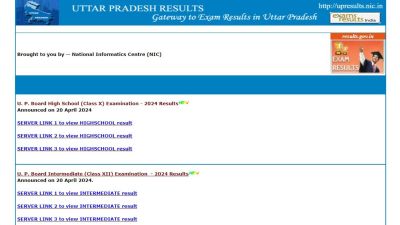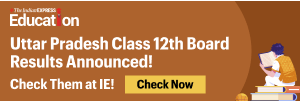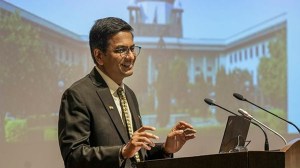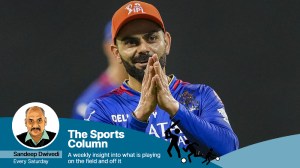- India
- International
Wendy Doniger at Idea Exchange: ‘Ancient Hinduism is very liberal. What’s being said in its name today makes no sense historically’
As one of the world’s foremost scholars of Hinduism, Sanskrit and mythology, Wendy Doniger has also found herself at the centre of contentious debates on the politics of knowledge, the study of religion, the insider-outsider readings of texts and traditions. Her book The Hindus: An Alternative History had to be withdrawn after a campaign against it in India in 2014.
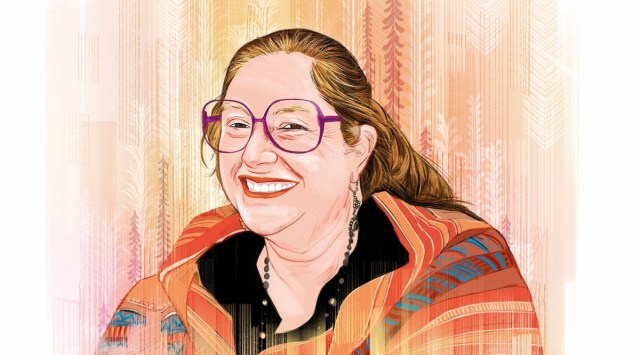 Wendy Doniger, author and Mircea Eliade Distinguished Service Professor of the History of Religions at the University of Chicago. Illustration: Shyam Kumar Prasad
Wendy Doniger, author and Mircea Eliade Distinguished Service Professor of the History of Religions at the University of Chicago. Illustration: Shyam Kumar PrasadWendy Doniger on how she discovered Sanskrit and Hinduism, the backlash over her most successful book, and why, at its core, Hinduism has always been diverse. The session was moderated by Vandita Mishra, National Opinion Editor
VANDITA MISHRA: What drew that 22-year-old to the study of Sanskrit and Hinduism?
It was those Jewish refugee parents, my mother and my father. My mother gave me a copy of EM Forster’s A Passage to India (1924) when I was eight or nine years old. I also read Rumer Godden’s stories about India. Eventually, I came across a translation of the Upanishads, which I now realise was a terrible translation by Juan Mascaro. Then, I liked languages. I studied Latin in school, I had a young Latin teacher, and she said, ‘If you like Latin, you’d love Greek.’ I loved Greek. She said, ‘Well, if you want a difficult script, and a more complicated grammar, try Sanskrit’. I said, ‘What’s Sanskrit?’ And it was the language of India.
I grew up in a political household. There was a lot going on in America in those days, and I was part of it. I thought, ‘This is not what I want to do. I want to go into a strange language, where I can lose myself in another culture.’ So at the age of 17, I chose Radcliffe, because that was the only place a freshman could learn Sanskrit. I was already interested in India. By the time I got there, when I was 22, that was five years out of my formal study of Sanskrit.
It was 10 years after that that I thought, this is a country I really am interested in. It’s so different from my own country. Everything that I don’t like here, I like there. When I got to India, I found things I didn’t like there either. But I always loved the people, the language, the landscape, the religious rituals, the temples and the music. I continued to be amazed and delighted by it even when I found things that were difficult for me. Difficult, not so much because of the culture, but because of my culture that I had grown up very protected in. I had never really seen poverty in America. I could have, but I didn’t. So, it was a double culture shock. It was the shock of coming from America to India and the shock of coming from a very sheltered childhood to a grown-up world. India was my first taste of the real world. It was a deep leap.

VANDITA MISHRA: What comes through this book is the kind of relationship you had with your parents. Your mother introduced you to Indian texts, and your father, about him you write, ‘I always imagine the reader as my father on my side.’ Has that endured? Or have the likes of Dinanath Batra pierced that trust or shattered it?
Absolutely not. I always felt that my father was my reader, and that he would like it. I always taught my students not to write thinking, ‘Oh my god, I know if I say this, someone will disagree.’ You always have some sympathetic readers. Even at the height of the controversy of my book, for every one of those nasty letters, I had two or three people saying, ‘I liked your book’, ‘I never knew those things about Hinduism’. I always felt, rightly or wrongly, that I had more fans than enemies. And that the enemies were wrong.
I’m sensitive to criticism when I get a review. Let’s take the book The Hindus: An Alternative History (2009). What’s wrong with The Hindus is not what the bad guy said was wrong. The section on the Mughal and British period is a period I’m not an expert in, I’m a Sanskritist. I really should have consulted more of my colleagues to get a little better understanding of those periods. That’s what I’m ashamed of in that book. I’m sorry I didn’t write more intelligently about the historicity of those two periods. But that’s not what people said. It was like saying, ‘I hate you because your hair is green.’ Well, it isn’t. One or two just reviews said, ‘This lady should have done more work on her Mughal history.’ That is serious, and to that you say, ‘I’m really sorry.’
I was always glad that I had written the book, flawed though it was. And of course, it’s been my most successful book, too. In a way, it did nothing but good, with the one serious exception, which is that I can’t go back to India.
VANDITA MISHRA: But did it not come in the way of a more serious engagement with your scholarship, with your work on Hinduism and a more serious engagement with the study of Hinduism? Do you not think that the disservice that Dinanath Batra or Rajiv Malhotra did to you was the fact that it became an either/or situation, that you are with Wendy or against her?
That’s a very good question. In answer, I would simply have to say it was an either/or situation at that moment in Indian history. Do you love Muslims? Do you hate Muslims? These meaningless big questions were already out there. I was simply identified with one of the two camps that were not able to speak to each other. Whether my book made things worse or better, I don’t know. What it did not create was that meaningless bashing and crashing of minds that simply didn’t listen to one another at all. It didn’t even really create the situation with regard to my own work. I’ve had meaningful, critical conversations since the writing of The Hindus. I was drawn into a very bad, stupid fight, and maybe made it worse, but I didn’t start it. It’s gotten steadily worse ever since, until today, where it’s the worst it’s ever been.
VANDITA MISHRA: Your work has emphasised the diversity of traditions in Hinduism. You have highlighted the voices of women of lower castes, of non-Hindu others, of animals. Why did you think these voices needed retrieving?
One of the things that I felt was ironic about the reaction of people who hadn’t read The Hindus was that what I was trying to do was to show that in the history of Hinduism, those voices had been there. If you read the text carefully, there are women’s voices, Dalit voices, voices on behalf of animals, on behalf of eating animals, on behalf of killing cows. So the ‘Alternative History’ in the subtitle of that book was to show that Hinduism is a much more liberal religion throughout its history than its critics said. It is contemporary Hinduism that is, in many ways, narrower.
‘I was always glad that I had written the book, flawed though it was. It’s been my most successful book, too. In a way, it did nothing but good, with the one serious exception, which is that I can’t go back to India’
At the present moment, these voices are beginning to be blotted out. The idea of this old rule, under which the book was persecuted, that you mustn’t publish anything that offends the sensibility of a religious person, was originally made under the British Raj to protect Muslims. Anything can offend the sensibilities of a religious person. That is not true to the ancient traditions of Hinduism. It’s not even true to Hinduism under the Raj, which is already in some ways a distortion. So, the period that I write about, which is ancient Hinduism, is just a very liberal religion. In so many ways what’s being said in its name today makes no sense whatsoever historically. It grows out of politics. It does not grow out of religion or oral literature.
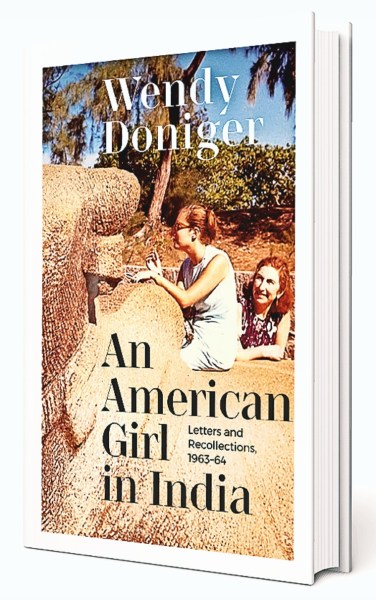 An American Girl in India (Speaking Tiger), traces her lifelong commitment to Sanskrit and the study of Hinduism through the letters that she wrote to her parents from her first and her longest trip to India in 1963-64.
An American Girl in India (Speaking Tiger), traces her lifelong commitment to Sanskrit and the study of Hinduism through the letters that she wrote to her parents from her first and her longest trip to India in 1963-64.VANDITA MISHRA: When does this more unitary, more colourless Hinduism start coming in?
It comes in with the rise of the RSS as the dominant branch of the BJP. RSS was already there under the Raj but it was not dominant when India became independent. In the recent two decades, I would say it’s an RSS strategy, ideology that is now being sent forth as the voice of Hinduism. It isn’t. It’s the voice of politics. Hindus are still Hindus all over India, they’re doing what they always did. They’re reciting their poems, worshipping their gods, telling their stories. But out of Delhi, a different story is being told. And, as we saw with the storming of the Babri Mosque, serious consequences flow from that message that’s coming from the centre now.
VANDITA MISHRA: When we talk of the diversity of Hinduism, it has given rise to a certain kind of an accusation — the diversity is sometimes used to deny identity, or coherence, or a core. For you, beneath that diversity, what is it that unites Hinduism?
Ironically, one is the idea that there are many gods to worship, and that not only will I worship mine and let you worship yours, but that I might worship another god on another occasion. That is a spirit which I find particularly Hindu, that no matter what your theological tastes are, you won’t be monotheistic in the narrow sense.
Also, there are certain philosophical ideas which Hindus are familiar with, and may or may not embrace but respect — ideas like karma, dharma, a kind of social justice that you strive for no matter whether you reach it or not; the idea that actions have consequences.
Then there are the stories, what my colleague (poet and linguist AK) Ramanujan said, ‘No Indian ever hears of the Mahabharata or the Ramayana for the first time.’ He used the word ‘Indian’ rather than ‘Hindu’ and he was right to do so, because those texts are also a part of the world of Jains, Buddhists, Jews, Christians as well as Muslims in India. But it is particularly the shared heritage of the people that I would call Hindu. There’s a narrative bond between Hindus of all beliefs, which, indeed, significantly also includes Muslims.
VANDITA MISHRA: The Hindu nationalism that we see today, do you recognise the Hinduism that you have loved and spent a lifetime’s work on? Can you absolve Hinduism from the responsibility of Hindutva which preys upon resentments and grievances?
The seeds of these problems are there in the religion itself. There have been moments when people have been killed for eating the wrong thing, marrying the wrong woman. There is violence built into a lot of Hindu prax, Hindu actions, not so much into what people believe.
The whole problem with the violence of ancient Indian history has been that you define your kingdom as surrounded by enemies. The people on the borders of your enemies are your allies, and the minute you conquer your enemies, the people who used to be your allies become your enemies. So that idea which is there in the Arthashastra (Kautilya) around 200 BCE, offers a precedence of belligerence for anyone who wants to make his kingdom do that.
The present Hindutva ideology picks up on that ancient Indian tradition as well as we will kill people who do the wrong thing. Those two traditions are woven in and out of the history of Hinduism. So there is a way in which they can call on tradition. The idea, however, that the Hindu texts are literally true, that Rama was born anywhere at all, let alone in the place that we now call Ayodhya, that kind of literalisation of the text is quite new. It does build on the text, but taking those texts as literal history is a new, bad, terribly destructive trick.
VANDITA MISHRA: Do you see it capitalising on some kind of an anxiety or insecurity at the heart of Hinduism?
I see it as capitalising on hatred. The hatred of the other is a weakness in the human race. It’s there in all religions. Most of us get over it after a while. People deal with their ideological differences because they meet individual people, and they like them, they marry them, they go into business with them. With the kind of fanning of the flames that’s going on now, that kind of working on the weaknesses of human nature is tragic.
VANDITA MISHRA: Why I asked you about this insecurity is that the so-called Hindutva upsurge is also multi-layered. There is, of course, the imagination of the other, but there is also a part of it which is affirmation, assertion, empowerment. So what I’m asking you perhaps is, why was that need felt?
I don’t know enough about contemporary Indian politics, I can only give a historical answer, which is the Raj. Those years of submission to a foreign government, with all the indignities that involved, those wounds have not yet had time to heal. I still think that there’s a lot there, from the centuries of disgrace, mistreatment, belittlement whittling away at the ego.
Newsletter | Click to get the day’s best explainers in your inbox
One of the things that I’ve been interested in is the assertion under Modi’s government about Vedic science. We had airplanes, we had rocket science, it’s part of that ‘we are as good as the people who dominated us’. I think, in some ways, the RSS really grew up in resistance to the Raj.
One of the things I noticed, in writing the book when I was young, was that India seemed young to me, too. The idea that they had their own country back was new and people were happy about it. There was a kind of gentleness and forgivingness of European civilisation, which died a bit. The resentment which remained was the dominant thing. That’s certainly part of the scientific issue. You don’t have to have rocket science in ancient India, you have the greatest mathematicians in the world, why not be happy with what did make India great? There’s still an edge about the European damage that was done to the corporate ego of India during the Raj.
LIZ MATHEW: In a 2015 interview, you said that this Indian government is becoming intolerant. Do you think it is becoming increasingly intolerant? Or has there been a balance?
I don’t follow contemporary Indian politics well enough to give a good answer to that. But I think one thing that I did follow for a while, is that in many ways the present government has made the position of Dalits better, that there are more positions in the government occupied by Dalits. In that sense, one of the most unfortunate intolerances of the Indian subcontinent has been made better.
The tolerance of freedom of speech, I gather, has been made worse. It is harder to publish books that say anything even remotely critical of the government. I think from the standpoint of freedom of speech in the English-speaking world (I only know the Sanskrit-speaking or English-speaking worlds in India) the intolerance has gotten worse.
LIZ MATHEW: Both the BJP and the RSS say that they are into the process of cultural revivalism, that Prime Minister Modi is in the process of reaching it to new heights. Do you think that in that process, it is overshadowing the real Hinduism?
The culture doesn’t need to be revived, the culture is alive and well. There’s all sorts of varieties of Hinduism. So what’s called cultural revivalism is a kind of oversimplification and distortion – there are 10 things that all Hindus believe, there are two books that all Hindus read, and that’s called cultural revivalism. Indeed, there probably are some people in India who didn’t know those 10 things and hadn’t read those two books, but they knew those 100,000 other things and they read 10 other books. So it’s really a replacement of what I see as still a very lively culture, threatened, as all cultures are in the world, by television and mass communication.
ANANTHAKRISHNAN G: Hinduism has grown with debates, discussions and criticisms. To a large extent, Christianity has too. This practice of debates and discussions don’t seem to be happening in Islam. Would you advocate for more debates and discussions within Islam?
One of the things that distinguishes Hinduism in general from Islam and Christianity is that there is a central authority. There is a Pope, there is an imam, there are people who are at the centre of Islam and of Christianity who can make decisions which affect everyone in the whole community. Hinduism has never had a Pope, it’s never had an imam. The attempt of the RSS to say, ‘we’re the Pope’ is, to me, madness. It doesn’t suit the history of Hinduism. The idea that you can believe this if you’re a Hindu, but you can’t believe that as a Hindu, is a new idea, foreign to the nature and history of the religion as I know it.
Islam does provide a greater contrast with the way that the religion is policed. But the fact that the Muslims in India have been there for so long and are such a part of the religion of India distinguishes them from Islam as a whole, where, in other parts of the world, there is much more of a doctrinaire attitude toward behaviour. In any case, it’s the attitude of Hindus to Muslims, which I think is the problem with the RSS, not what it is that Muslims themselves believe.
VANDITA MISHRA: The power of knowledge-making is seen to be concentrated in western universities. In India, you have a certain deracinated elite, which is not entirely comfortable in the study of its own traditions. Universities in India do not have religious-studies departments. You have religion being studied in small isolated enclaves by traditionalists who don’t ask questions, and those who ask questions are not grounded in the texts adequately. And then you have the rise of muscular Hindutva. Today, if there is a young person, your student, who wants to come and study Hinduism in India, what would you advise them?
With the students that I’ve trained in the study of religion, over a period of 40 years, when they have gone to India, they have usually tried to do three things – study in Indian universities, study with a pundit, and walk around and keep (their) eyes open.
Religious Studies has never been a part of anybody’s curriculum for a long time. One of the problems that’s happening in America is the idea that unless you are a member of the faith, you can’t study it. That only a Hindu can teach Hinduism, that only a woman can teach women’s studies, that only Black people can teach the history of Black people in America. This kind of ghettoisation of knowledge is rising. It’s a problem in the structure of knowledge in the broader European and Asian world. It’s something that needs to be fought against — the idea of otherness of education. When I went to India, no one ever said ‘We can’t tell you about Hinduism, you’re a New York kid’. As long as people don’t say that, there’s hope for us.
The insights that a non-Hindu has into Hinduism are different from the insights that a Hindu has. There are things that only a Hindu knows about Hinduism. It’s the idea of the combined views that is the ideal situation of education. That is no longer going to be accepted if people are so possessive about their traditions that they can’t let anyone else in. Then we’re in a lot of trouble, not just in India, but in the whole world.
Why WENDY DONIGER
As one of the world’s foremost scholars of Hinduism, Sanskrit and mythology, Wendy Doniger has also found herself at the centre of contentious debates on the politics of knowledge, the study of religion, the insider-outsider readings of texts and traditions. Her book The Hindus: An Alternative History had to be withdrawn after a campaign against it in India in 2014. Her latest book, An American Girl in India, traces back her lifelong commitment to the study of Sanskrit and Hinduism through her letters to her parents from her first and longest trip to India at the age of 22
Must Read
Buzzing Now
Apr 20: Latest News
- 01
- 02
- 03
- 04
- 05











